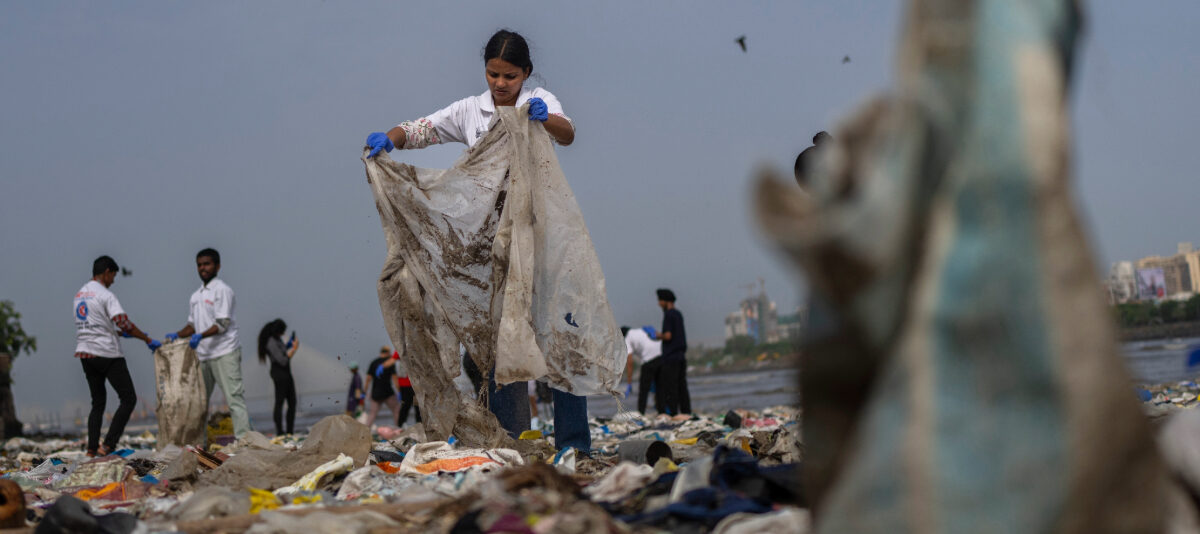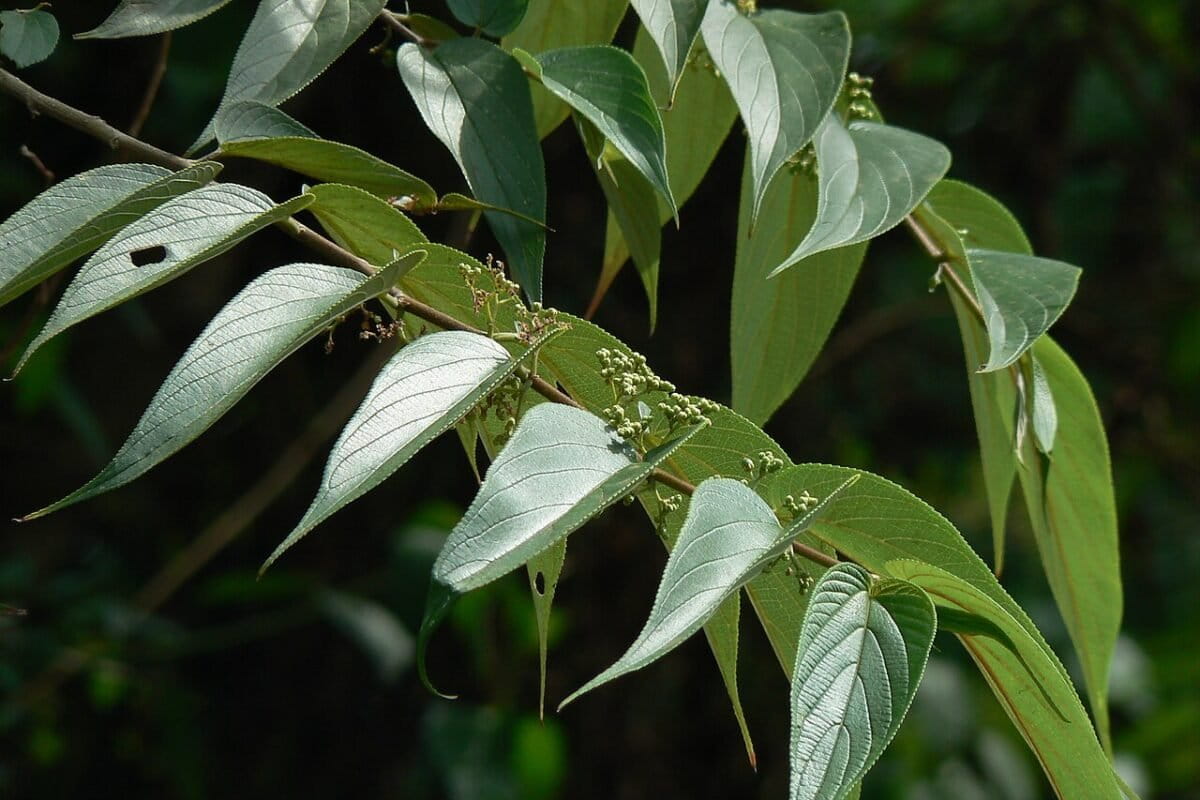An Australian sailor has described parts of the Pacific Ocean as “dead” because of severe overfishing, with his vessel having to repeatedly swerve debris for thousands of kilometers on a journey from Australia to Japan.
Ivan MacFadyen told of his horror at the severe lack of marine life and copious amounts of rubbish witnessed on a yacht race between Melbourne and Osaka. He recently returned from the trip, which he previously completed 10 years ago.
“In 2003, I caught a fish every day,” he told Guardian Australia. “Ten years later to the day, sailing almost exactly the same course, I caught nothing. It started to strike me the closer we got to Japan that the ocean was dead.
“Normally when you are sailing a yacht, there are one or two pods of dolphins playing by the boat, or sharks, or turtles or whales. There are usually birds feeding by the boat. But there was none of that. I’ve been sailing for 35 years and it’s only when these things aren’t there that you notice them.
MacFadyen said that the lack of ocean life started at the edge of the Great Barrier Reef, describing Queensland waters as “barren” and “unquestionably overfished.”
“We saw a boat come towards us and we thought they might be pirates, but they had bags and bags of fish,” he said. “We said ‘there’s only two of us, we can’t do anything with all that’ and they said ‘don’t worry, just throw it over the side.’
“There was around 100 large fish there. But it was valueless for them because they were after tuna and nothing else. They just trawled the whole ocean and everything other than tuna was bycatch.”

Hundreds of tons of jack mackerel (Trachurus murphyi) are caught by a purse seiner in 1997. Photo by: C. Ortiz Rojas.
For the majority of the voyage to Japan, MacFadyen had to ensure that his yacht wasn’t holed by clumps of rubbish he said were “as large as a house.”
“There were fenders from ships, balls of net and telegraph poles with barnacles on them that were never going to sink,” he said. “There was nothing like that 10 years ago. I couldn’t believe it.
“We wouldn’t motor the boat at night due to the fear of something wrapping around the propeller. We’d only do that during the day with someone on lookout for garbage. When you stood on the deck and looked down you’d see the rubbish shimmering in the depths below, up to 20 meters under the water.
“We went onto the US and back again. We did 23,000 miles [37,000km] and I’d say 7,000 of those were in garbage. The boat is still damaged from it. We had to free the rudder of rubbish one night, which was scary. We were terrified of something ripping a hole in the boat.”
MacFadyen said that the trip had made him “very cranky” and has inspired him to encourage better monitoring of ocean rubbish to ensure governments’ anti-pollution policies are working.
“Humans are such a blight on the planet that we will just trash an area because it is out of sight most of the time,” he said. “It completely changed the way I look at things. I used to chuck rubbish away without thinking twice but there’s no way I will do that now.”
According to marine conservationists, overfishing is a global problem affecting nearly 90% of the world’s fisheries.
The problem has resulted on catch quotas being placed on many species of fish, although the exact extent of overfishing in Australia is slightly unclear.
Government fisheries data shows only bluefin tuna and the school shark are dangerously overfished in Australian waters. However, the Australian Marine Conservation Society’s guide to sustainable seafood places 26 species—including kingfish, snapper and tiger prawns—on a “red list” that should not be consumed due to their fragile status.
Pamela Allen, marine campaigner at the Australian Marine Conservation Society, told Guardian Australia that there have been improvements in Australian fisheries in recent years but problems remain.
“The quota for bluefin tuna has just been increased by 10%, despite there being no evidence to justify this,” she said. “There are also issues in state fisheries—Queensland has no scientific observer system, for instance, and rely just on fishers’ logbooks for what they catch in sensitive areas such as the Great Barrier Reef.
“Trawling the ocean results in a high level of bycatch because it’s hard to be exact with what you’re catching when you’re dragging a gigantic net along the sea floor.
“People don’t realise that flake is shark and that sharks are threatened due to overfishing. There is no single sustainable source of shark in fisheries. Consumers have a choice every day to make a small difference.
“Fish is one of the last wild foods we eat, along with mushrooms, and we have to realise that once it has gone, it is gone. Governments and fishers are making some changes but they need to move more quickly or there won’t be any fish left.”
Original story: Oliver Milman. Yachtsman describes horror at ‘dead’, rubbish strewn Pacific Ocean. The Guardian – October 21st, 2013
Related articles
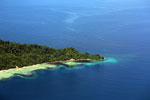
(10/03/2013) The oceans are more acidic now than they have been for at least 300m years, due to carbon dioxide emissions from burning fossil fuels, and a mass extinction of key species may already be almost inevitable as a result, leading marine scientists warned on Thursday. An international audit of the health of the oceans has found that overfishing and pollution are also contributing to the crisis, in a deadly combination of destructive forces that are imperiling marine life, on which billions of people depend for their nutrition and livelihood.
Bad feedback: ocean acidification to worsen global warming
(08/28/2013) As if ocean acidification and climate change weren’t troubling enough (both of which are caused by still-rising carbon emissions), new research published in Nature finds that ocean acidification will eventually exacerbate global warming, further raising the Earth’s temperature.
Plan to preserve the world’s ‘last ocean’ killed by Russia
(07/16/2013) As the most pristine marine ecosystem on the planet, Antarctica’s Ross Sea has become dubbed the world’s “last ocean.” Home to an abundance of penguins, whales, orcas, seals, and massive fish, the Ross Sea has so far largely avoided the degradation that has impacted much of the world’s other marine waters. However, a landmark proposal to protect the Ross Sea, as well as the coastline of East Antarctica, has failed today due to opposition by Russia.
Ocean acidification pushing young oysters into ‘death race’
(06/11/2013) Scientists have long known that ocean acidification is leading to a decline in Pacific oyster (Crassostrea gigas) in the U.S.’s Pacific Northwest region, but a new study in the American Geophysical Union shows exactly how the change is undercutting populations of these economically-important molluscs. Caused by carbon dioxide emissions, ocean acidification changes the very chemistry of marine waters by lowering pH levels; this has a number consequences including decreasing the availability of calcium carbonate, which oysters and other molluscs use to build shells.
The world’s largest ‘waste dump’ is found in the Pacific Ocean
(05/06/2013) If you were to travel from the United States of America to Japan, you would most likely encounter what could be described as the world’s largest waste dump: a 100,000 tonne expanse of debris floating around a large region of the Pacific Ocean. The total area of this phenomenon has been said to equal the size of continental U.S., but the truth about its true size remains unknown.
Animals dissolving due to carbon emissions

(12/03/2012) Marine snails, also known as sea butterflies, are dissolving in the Southern Seas due to anthropogenic carbon emissions, according to a new study in Nature GeoScience. Scientists have discovered that the snail’s shells are being corroded away as pH levels in the ocean drop due to carbon emissions, a phenomenon known as ocean acidification. The snails in question, Limacina helicina antarctica, play a vital role in the food chain, as prey for plankton, fish, birds, and even whales.
Above the ocean: saving the world’s most threatened birds
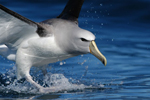
(11/01/2012) A life on the ocean is a perilous one for any bird. They must expend energy staying aloft for thousands of miles and learn to be marathon swimmers; they must seek food beneath treacherous waves and brave the world’s most extreme climates; they must navigate the perils both of an unforgiving sea and far-flung islands. Yet seabirds, which includes 346 global species that depend on marine ecosystems, have evolved numerous strategies and complex life histories to deal with the challenges of the sea successfully, and they have been doing so since the dinosaur’s last stand. Today, despite such a track record, no other bird family is more threatened; yet it’s not the wild, unpredictable sea that endangers them, but pervasive human impacts.
A new way to measure the ocean’s health

(10/23/2012) A diverse array of institutions have come together to release a new, revolutionary ocean health assessment called the “Ocean Health Index.” Researchers formed the index in order to gauge the health of the world’s oceans. The index is the result of a huge collaborative effort, including top researchers crossing a diverse range of disciplines such as the National Center for Ecological Analysis and Synthesis (NCEAS) and Conservation International.
Great Barrier Reef loses half its coral in less than 30 years

(10/01/2012) The Great Barrier Reef has lost half of its coral cover in the last 27 years, according to a new study released today in the Proceedings of the National Academy of Sciences (PNAS). Based on over 2,000 surveys from 1985 to this year the study links the alarming loss to three impacts: tropical cyclone damage, outbreaks crown-of-thorns starfish that devour corals, and coral bleaching.
Coral reefs in Caribbean on life support
(09/11/2012) Only 8 percent of the Caribbean’s reefs today retain coral, according to a new report by the International Union for Conservation of Nature (IUCN). With input and data from 36 scientists, the report paints a bleak picture of coral decline across the region, threatening fisheries, tourism, and marine life in general.
Coral calcification rates fall 44% on Australia’s Great Barrier Reef
(09/04/2012) Calcification rates by reef-building coral communities on Australia’s Great Barrier Reef have slowed by nearly half over the past 40 years, a sign that the world’s coral reefs are facing a grave range of threats, reports a new study published in the Journal of Geophysical Research – Biogeosciences.
2,600 scientists: climate change killing the world’s coral reefs
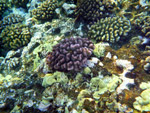
(07/10/2012) In an unprecedented show of concern, 2,600 (and rising) of the world’s top marine scientists have released a Consensus Statement on Climate Change and Coral Reefs that raises alarm bells about the state of the world’s reefs as they are pummeled by rising temperatures and ocean acidification, both caused by greenhouse gas emissions. The statement was released at the 12th International Coral Reef Symposium.
World failing to meet promises on the oceans
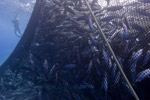
(06/14/2012) Despite a slew of past pledges and agreements, the world’s governments have made little to no progress on improving management and conservation in the oceans, according to a new paper in Science. The paper is released just as the world leaders are descending on Rio de Janeiro for Rio+20, or the UN Summit on Sustainable Development, where one of the most watched issues is expected to be ocean policy, in part because the summit is expected to make little headway on other global environmental issues such as climate change and deforestation. But the new Science paper warns that past pledges on marine conservation have moved too slowly or stagnated entirely.


